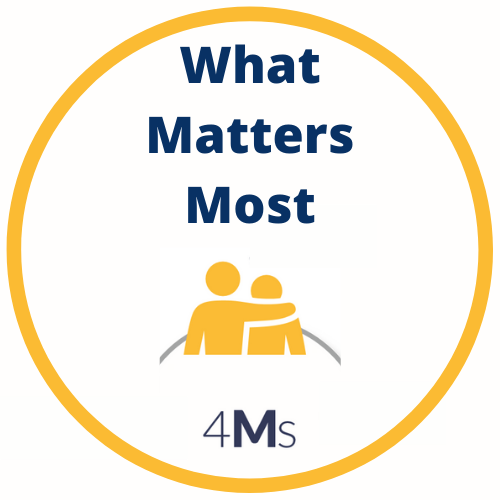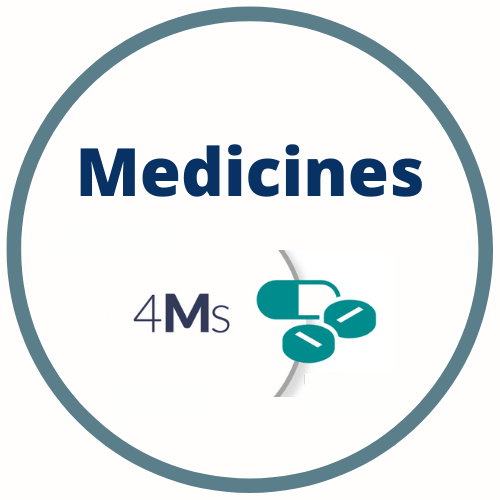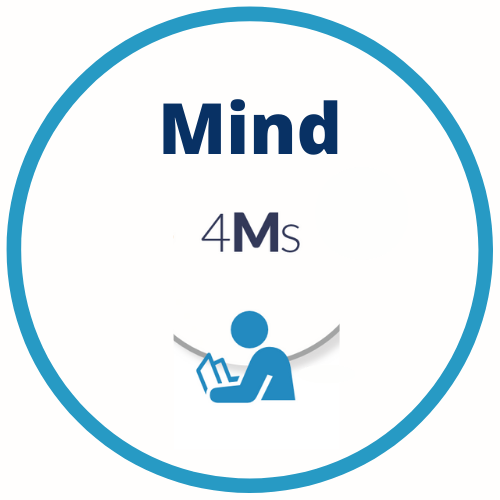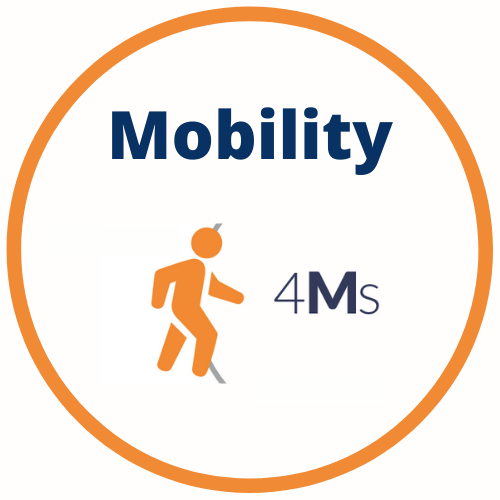What are the 4Ms? –> It’s about what Matters to you!
Think of these as four opportunities for greater health and four areas of greatest risk for disability in older adults.

Click the circles below for more information:
What Matters Most
Ask Yourself: What Matters most to you?
In help planning care for your future, visit the below resources:
– Healthcare
Click for tips to prepare for your healthcare visit
– Advance Care Planning
Click for our advance care planning guide
– Dealing with Ageism – you are not alone
Click to learn how to deal with Ageism from Doctors and Nurses
Reagan Burke, 75, wishes she had been more vocal with her orthopedic surgeon.
Credit: Courtesy of Joan Wolfensberger
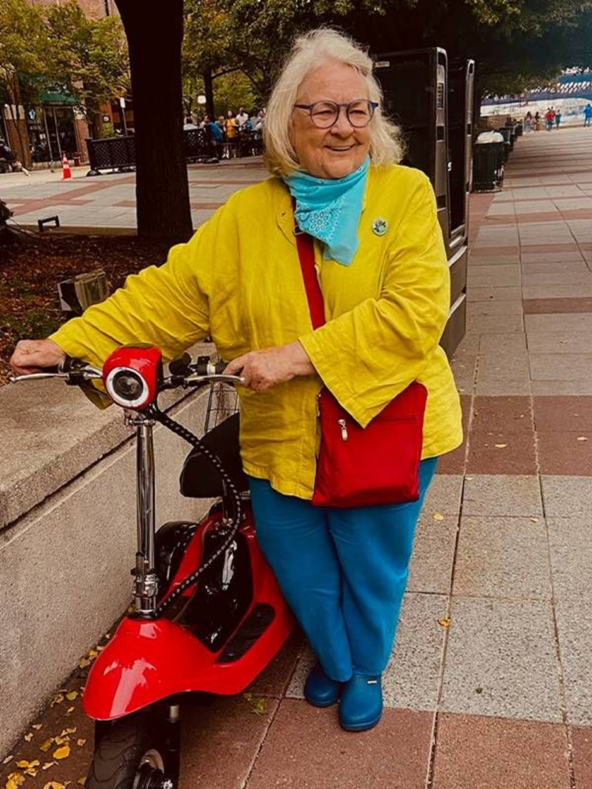
Medicines
Ask Yourself: Do I know what I’m taking?
You might take many medicines now, which can mean more side effects. Some drugs affect us in new ways as we age, too.
What You Can Do:
- Talk with your medical provider about any side effects that you experience.
- Ask your care team to assess how your medicines interact with each other
- Tell your providers about any over-the-counter medicine or natural remedies you take.
click below to view medicine related flyers
Empower Brochure
(Test your knowledge about your anxiety or insomnia medication)
Medication Tracker
High Risk Medicines for Older Adults
Stay Safe Using Opioid Medicines
Narcan Instructions for Use
Mind
Ask yourself: How can I improve my brain health?
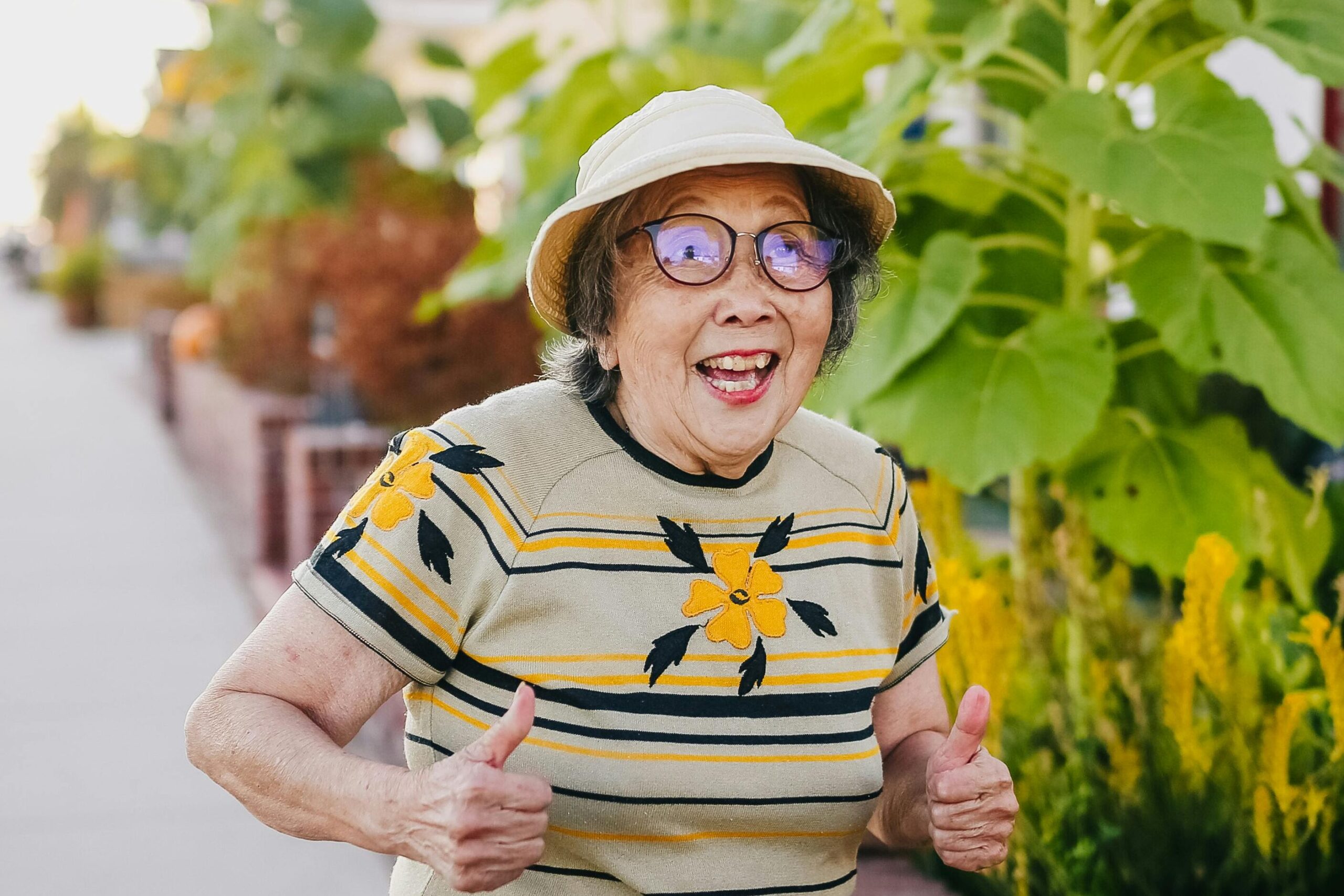
“Brain Health, You Can Make a Difference” is an evidence-based program to help older persons take simple steps toward better cognitive health.
Having a healthy brain affects our mood and decreases the likelihood of having illnesses that decrease our quality of life. Receive encouragement, knowledge, and support on building exercise, good nutrition, adequate sleep, socialization, and mental stimulation into your daily schedule.
Individuals interested can call the Aroostook Agency on Aging at 764-3396 to speak to a trained representative. Callers will receive free materials, as well as a confidential follow-up phone call with individualized support offered to review the tools provided and answer questions.
Click below to view brain health flyers:
Aging Healthy Brain
Depression in Older Adults
Tips for Depression and Loneliness
Understanding Loneliness and Social Isolation: How to Stay Connected
(Read the booklet from the National Institute on Aging at NIH)
Mobility
Ask Yourself: How can I keep moving to continue doing what I love?
Local Maine Activities:

Southern Maine Agency on Aging virtual programs calendar. Programs include: guided relaxation, gentle exercise, gentle yoga classes, Tai Chi for health and balance.
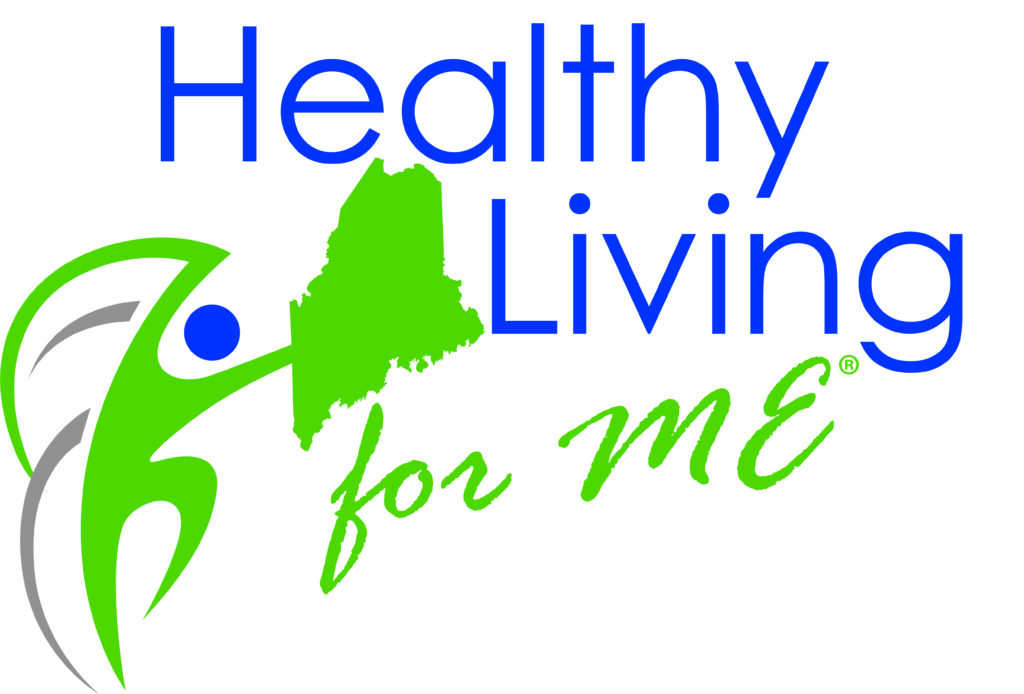
Healthy Living For ME virtual classes. Healthy Living for ME’s programs are evidence-based and proven to make a positive difference in quality of life measures such as feeling more in control, less stressed, and able to do more of what makes you feel well. Classes include strategies and exercises to take an active role in managing your health and well-being, and are offered in four program categories: Falls Prevention, Diabetes Prevention & Self-Management, Caregiver Support, and Chronic Pain & Disease Management.
Exercises to do at home:
STEADI: Older Adult Fall Prevention
STEADI was developed by the CDC’s Injury Center following guidelines from the American and British Geriatrics Societies.
Postural Hypertension
Check for Safety
What You Can Do
Stay Independent
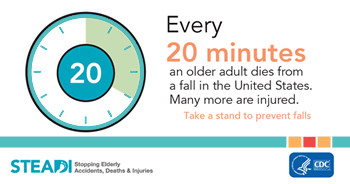
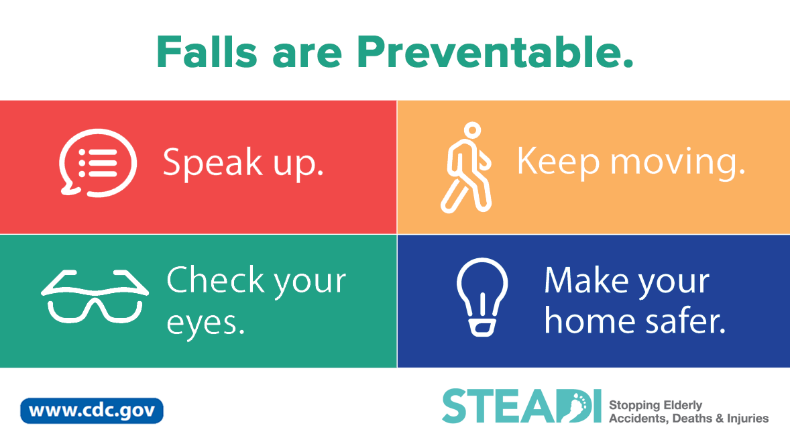
U-ExCEL
U-ExCEL is a functional fitness program that promotes the broad spectrum of health for older adults living in the community, in nursing homes, assisted living settings, or in independent housing on life care campuses. U-ExCEL encompasses individuals’ health and fitness goals along with current medical diagnoses to improve or maintain function through the provision of functional fitness techniques including strength, balance, endurance, nutrition, and other supportive wellness interventions.
For more workout videos, or to learn more about U-ExCEL programs, visit the U-ExCEL website

